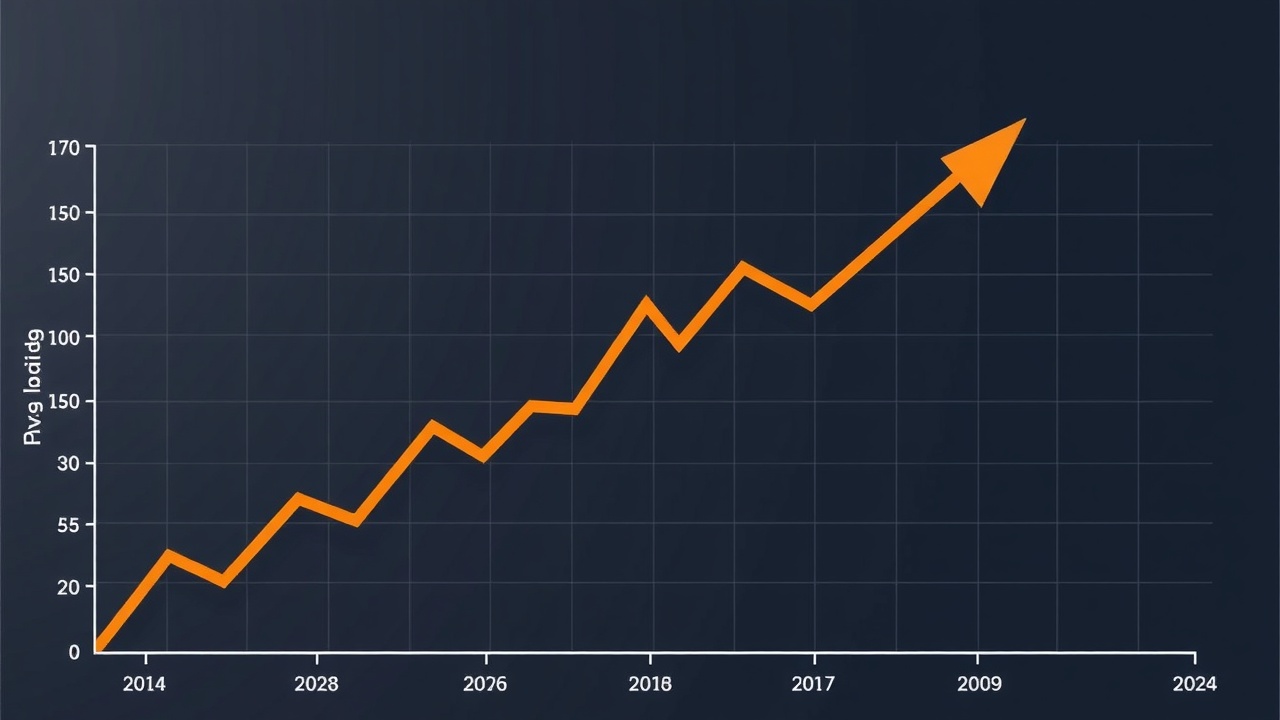
Despite a decline in the overall number of investment fraud cases, the amount of money stolen through investment fraud increased in 2024
Even though there were fewer investment fraud cases in 2024, victims still lost millions of dollars.
Despite a 24% decrease in cases, data indicates that 144.4 million was stolen in 2024 as a result of this kind of fraud, a 34 percent increase from 2023 (114.1 million).
The act of a criminal persuading a victim to transfer their funds to a fraudulent fund or to make a fraudulent investment is known as investment fraud. A scammer might, for instance, promise you enormous returns on your investment if you send them money.
An investment of any kind can be used by a scammer to lure their victim. These frauds may involve investments in stocks or commodities like real estate, gold, cryptocurrency, or even wine.
According to recent data released by UK Finance, fraudsters stole 1 point 17 billion last year, which is roughly equal to 2023.
The number of confirmed fraud cases reported increased by 13% since 2023 to 331 million.
As the BFIA noted in April, an increasing number of investment scams are being spread on social media by using AI deepfaking, in which con artists take advantage of well-known people's reputations.
According to Ben Donaldson, managing director of economic crime at UK Finance, fraud "causes severe harm to individuals, society, and our economy as the stolen money goes to serious organized crime groups, both here and abroad" and is a "blight" on the UK.
The UK is seeing an increase in unauthorized fraud.
Unauthorized fraud, in which the account holders themselves do not grant permission for the payment to proceed and the transaction is executed by a third party, was by far the most common type of fraud in the UK.
Last year, 313 million Britons (up 14 percent) lost a total of 722 million (up 2 percent) as a result of unapproved fraud.
When a victim's credit or debit card is stolen and used to make unlawful purchases, card fraud is the most prevalent kind of unauthorized fraud overall. Over 3 million people in Britain were defrauded of over 572 million pounds by card fraud, which is 15% more than the previous year.
The 22 percent increase in remote purchase fraud, which had been declining in prior years, is one of the main causes of the rise in unauthorised fraud. Here, scammers gain access to your bank account and carry out unauthorized transactions.
Social engineering is a common technique used by scammers to carry out remote purchase fraud, in which they attempt to obtain one-time passcodes from victims and use them to validate fraudulent transactions.
Various forms of unauthorized fraud have decreased. Following a 2023 peak, card ID theft has decreased, with losses dropping 26% to £587 million and cases falling 23% to about 109,000.
For the first time since 2020, there has been a reported decrease in contactless fraud, with losses dropping by 1%.
The amount of authorized fraud is decreasing.
Despite an increase in unauthorized fraud, the volume of Authorized Push Payments (APP) decreased in 2024.
APP fraud is a technique where scammers use a phony invoice or romance scam to trick victims into sending them authorized payments, frequently through bank transfer.
Losses from APP fraud decreased by 2% to 450 million, which included 84 million non-personal losses and 365 million personal losses.
Much more than the decline in losses, the number of APP fraud cases also decreased by 20% to just under 186,000, marking the lowest level of APP fraud since 2020.
UK Finance attributes this decline to a number of factors, including investments in technology that can detect and flag potentially fraudulent activity and increasing consumer awareness of APP fraud.
Purchase scams are the most common kind of APP fraud, in which the victim pays in advance for goods or services that are never delivered. Although there were 16 percent fewer of these scams in 2024, losses rose 1 percent to 87.1 million.
In addition, APP fraud casesin which criminals pose as banks or law enforcement and persuade someone to transfer funds to a "safe account"decreased by 32%, and losses resulting from this kind of fraud decreased by 16%.
How much fraud are banks preventing?
Despite the fact that banks continue to face fraud, the amount of fraud that the sector prevents has grown annually.
According to UK Finance, the financial services sector prevented 1 point 45 billion in unapproved fraud, a 16 percent increase from 2023. This translates to a savings of 67p for every attempted fraud.
In addition, there are several legal safeguards against unapproved fraud that result in reimbursements; in 2024, 98 percent of cases involving unapproved fraud resulted in complete refunds.
It can be harder to get reimbursement for APP fraud, and according to UK Finance, in 2024, banks returned about 59% of the total amount of money that was stolen as a result of APP fraud to victims.
How can you guard against deception?
Given that scammers have stolen over £1 billion in consumer funds, it is wise to ensure your protection.
UK Finance supports the Take Five to Stop Fraud campaign, which encourages consumers to pause and think about whether the transaction they are engaging in is authentic.
Before giving up their money or personal information, consumers should pause and consider whether they might be fooled.
Customers are then advised by the campaign to question the transaction and determine whether it is fraudulent, and to keep in mind that it is acceptable to turn down, deny, or disregard requests for money.
Lastly, they advise customers who believe they have been duped to report it by getting in touch with their bank right away.
Financial scam reporting guidelines.
If you are unfortunate enough to become a victim of a scam or believe that you are being targeted, you can report it to Action Fraud by calling 0300 123 2040 at any time between 8 a.m. and 8 p.m., Monday through Friday.
The City of London Police, in collaboration with the National Fraud Intelligence Bureau, operates Action Fraud, the UK's national reporting center for fraud and cybercrime.
Additionally, you should notify your bank of the scam right away by calling 159 or visiting the Stop Scams UK website. You can give them a call directly, or make sure to dial 999 in the event of danger or danger.














Leave a comment on: Despite a decline in cases, fraudsters still steal and commit investment fraud totaling 144 million pounds